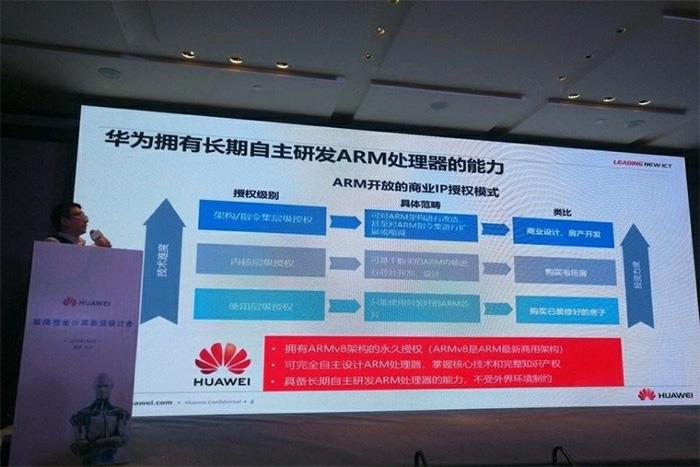
05-20: TSMC will not stop its supply plan for Huawei; Google reassure owners that existing devices with “services like Google Play & security from Google Play Protect will keep functioning on your existing Huawei device”; etc.
Chipsets
Intel, Qualcomm and Broadcom are allegedly cutting off their dealings with Huawei, effective immediately. This follows the earlier news of Google abruptly rescinding Huawei’s Android license and halting its access to Google Play Services and the Play Store, effectively dumping it out of the Android smartphone market and forcing the Chinese company to develop its own version atop the barebone open-source edition of Android. (The Verge, Bloomberg, CN Beta)
German chipmaker Infineon Technologies has allegedly suspended shipments to Huawei Technologies, in a sign that Washington’s crackdown on the Huawei is beginning to hamper its supplies beyond the United States. Infineon’s annual sales to Huawei amount to USD100M or less. (CN Beta, Asia Nikkei, Reuters)
China has released its first computer chips that can read brain activity. The computer chip, “Brain Talker”, is jointly developed by Tianjin University and China Electronics Cooperation. This computer chip is claimed could identify minor nerve information from brain waves generated by the cerebral cortex, and then decode the command. (CN Beta, Brinkwire, Xinhuanet, CGTN)
TSMC has officially announced that after initial evaluation, TSMC believes that it meets the export control regulations, so it will not stop its supply plan for Huawei. This means that TSMC’s Kirin 980 for Huawei and the Kirin 985 processor for 2H19 will not be affected. (My Drivers, CN Beta)
Biometrics
San Francisco has become the first city in the country to ban city use of facial recognition surveillance technology. The action, which came in an 8-to-1 vote by the Board of Supervisors, makes San Francisco the first major American city to block a tool that many police forces are turning to in the search for both small-time criminal suspects and perpetrators of mass carnage. (My Drivers, NY Times, SF Chronicle)
Connectivity
President of the Global IPv6 Forum, Latif Ladid has said that the transition of IPv4 to IPv6 is gradually accelerating. The global penetration rate of IPv6 has reached 27%. Asia will become the main battlefield of IPv6. India and China will become the largest user market for IPv6. China has more than 200M IPv6 Internet users. He has pointed out that while promoting 5G, the world has begun to study 6G, and related research in Finland, 6G can reach 100G/sec, by 2030, 6G should be deployed. (CN Beta, C114, My Drivers)
Phone
Alphabet’s Google has allegedly suspended business with Huawei that requires the transfer of hardware, software and technical services except those publicly available via open source licensing. (Engadget, Reuters, TechCrunch, Android Authority, VOA Chinese, DW)
Google has addressed Huawei users about its decision to cease business with the Chinese company. The Android maker is moving to reassure owners that existing devices with “services like Google Play & security from Google Play Protect will keep functioning on your existing Huawei device”. (CN Beta, 9to5Google, Twitter)
In regards to Google having its Android license for Huawei revoked, Huawei has made an official statement: Huawei has made substantial contributions to the development and growth of Android around the world. Huawei will continue to provide security updates and after-sales services to all existing Huawei and Honor smartphone and tablet products. (The Verge, CN Beta)
Huawei reportedly plans to localize smartphone production in Brazil. Before now, Huawei’s operation in Brazil was to supply to operators. The company has established a partnership with major Brazilian retailers and it has advanced plans to produce some of Huawei’s mobile phones in Brazil. (My Drivers, IT Home, Sina, GizChina)
Europe Union is making statements after US’s ban on Huawei — The French president said that he would not adopt excessive protectionism against companies such as Huawei; Germany believes that if Huawei is excluded, it will affect the speed of its 5G landing; Belgium is unlikely to block Huawei; Britain has taken the compromise route that allows Huawei to participate in the construction of 5G non-core components. (Asia Times, DW, CN Beta, Wallstreet CN, Yahoo, Huanqiu)
The European Union has had net neutrality regulations in place since 2016, but some are concerned that internet service providers (ISP) are playing fast and loose with those rules. A group of 45 advocate organizations, companies and individuals (including the Electronic Frontier Foundation) have sent a letter to EU officials accusing 186 ISPs of jeopardizing net neutrality though the use of deep packet inspection, which verifies the content of data traffic well beyond the basics. (Engadget, ZDNet, EDRi, Huxian)
A profit margin of 5% is a feature of Xiaomi’s new retail model. Xiaomi’s commitment to users in Apr 2018—the hardware comprehensive net interest rate does not exceed 5%, and the prices of online and offline products remain the same. Xiaomi’s model is not the same as the traditional model, and does not rely on the profit of a single product to win, but on the volume. Xiaomi hopes to make up for the lack of profit margins by the sales volume of the products. In Xiaomi’s model, passenger flow is important. Compared with the 5% profit margin of each mobile phone, Xiaomi pays more attention to the connection rate and repurchase rate brought by the passenger flow. (Laohu8, Wallstreet CN, CN Beta, My Drivers)
Redmi Note 7s is announced in India – 6.3” 1080×2340 FHD+ IPS, Qualcomm Snapdragon 660, rear dual 48MP-5MP + front 13MP, 3+32GB / 4+64GB, Android 9.0, rear fingerprint scanner, 4000mAh 18W fast charging, P2i, INR10,999 (USD158) / INR12,999 (USD187). (CN Beta, XDA Developers, India Today, GSM Arena)





